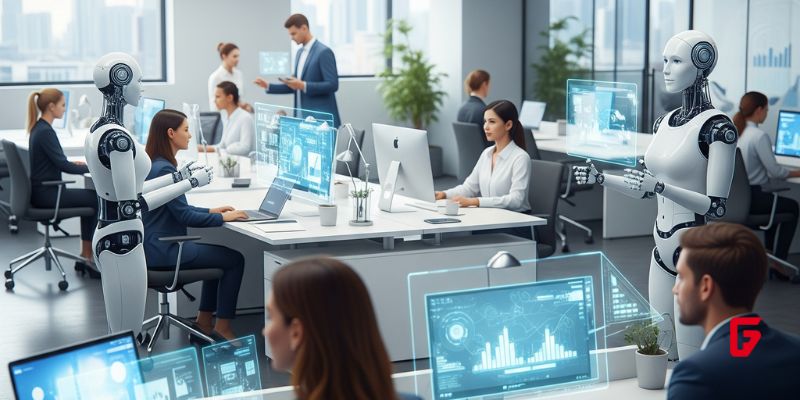Artificial intelligence is shaping the future of work in ways that were once reserved for science fiction. The surge in AI technologies and Generative AI is drastically transforming not just what we do at work, but the very fabric of our jobs, the skills we need, and even the industries themselves. As we move toward 2030, the expected shift in required skills for work is a staggering 70%, accelerated by the rapid pace of AI adoption.
Workplace Change: From Automation Threat to Opportunity
It’s easy to focus on fears of job loss — research estimates that around a quarter of jobs in the US and Europe could be performed entirely by AI by 2030, and globally, as much as 14% of workers may need to change their careers due to automation. Yet, this isn’t the whole story. According to Nvidia’s CEO, Jensen Huang, AI will not just make some roles obsolete — it will simultaneously ignite the creation of brand new professions and increase productivity. Almost every job will be augmented by AI, unlocking more meaningful and creative work for employees.
New Careers, New Demands
Consider this: For every 10 workers, at least one holds a job that didn’t exist at the turn of the millennium — titles like AI engineer or data scientist are evidence of how fast the job landscape is shifting. With generative AI tools like ChatGPT and Copilot now mainstream, AI literacy is quickly becoming a must-have skill. In fact, in just one year, the number of EU professionals adding GenAI skills to their profiles grew eightyfold.
Upskilling and Lifelong Learning: The Smart Response
The most futureproof workers are those who embrace lifelong learning and develop agility. The era of AI demands:
Flexibility: Rapidly adapting to new roles and technologies
Soft Skills: Creativity, emotional intelligence, and critical thinking — qualities that remain uniquely human.
Specialization: Building in-depth expertise in emerging domains.
Digital and AI” Literacy: Comfort with tools spanning from voice assistants to advanced data analytics.
Strategic Upskilling is already underway, but there’s still a crucial gap. Many workers feel overwhelmed by the speed of workplace transformation, highlighting the need for ongoing corporate and governmental investment in robust talent development programs.
The Economic Upside
While not all transitions will be smooth, history tells us that technological leaps generally unlock new, often better jobs and drive economic growth. Goldman Sachs projects that, while up to 300 million jobs worldwide could be replaced by AI, global productivity — and therefore economic output — is expected to rise substantially.
Looking Forward
In the coming years, we’ll likely witness the end of routine-heavy roles while seeing a growing demand for specialized tech skills and human-centered professions. Adaptability, curiosity, and a willingness to upskill aren’t just survival strategies — they’re the keys to thriving in an age where AI is your colleague, not your competitor.
The future of work, powered by AI, is a future of continuous transformation: new opportunities, new challenges, and endless potential for those ready to evolve.














